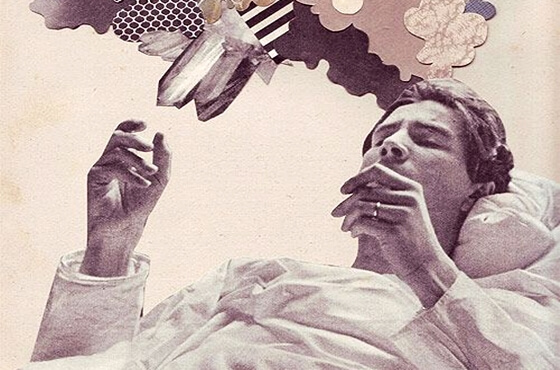When People Do You a Favor So You Owe Them One

Sometimes people aren’t actually doing you a favor, but rather proposing a deal. But the thing is they don’t say it openly. On the contrary: they make their help look like generosity. And then when you least expect it, they bring up what they did for you. Or worse still, they saddle you with obligations you never accepted in the first place.
People who act like that are hiding behind a false concept of gratitude. They think anytime they do someone a favor, there’s the understanding that it will be returned. However, they never check whether the other person thinks this way too. They just show up to claim their favor or expect you to do something for them, without even asking you. And if you don’t, they get angry and play the victim.
“He who does a favor for someone who deserves it, himself receives it”
-Aurelio Teodosio Macrobio-
You finally realize that the favor was not a favor but rather a trap. It’s a form of control and manipulation, a mechanism they’ll activate when it suits them. And what makes it deceitful is that it’s a sort of contract that you never signed. The person that did the favor signed it for you.
Why are they doing you a favor?
There are contexts where it’s clear that when someone does you a favor, you then owe it back to them. Politics, for example. It also happens at work. If you cover for a colleague you expect them to do the same for you, if you were to need it. In both examples, there is a factor that makes the equation transparent: they are favors between people who have a utilitarian, practical relationship, not family or friends.

A colleague or business partner may do a favor for someone but it’s evident to both parties that there are interests behind it. There’s no trap. Not to say that a person never does a favor for a stranger. You can help someone who needs it based on your principles or just because you want to.
However, when it comes to a closer relationship, in principle both the favor and the gratitude should be totally free. Help you give your family, your significant other, or a friend is because you want to. Because you can. Or because it makes you feel good.
When you do it you feel good. You don’t have a mental record book where you write it down as a debt to collect. If you are keeping track, then don’t say you did a favor, say that you initiated an exchange.
When the remedy is worse than the ailment
Unfortunately there are a lot of people who do keep strict accounts of any favor they’ve done. The worst thing about this is that they claim them when they want and how they want. No explicit agreement was ever made with the other person, and they may show up to collect at any time.

Then, when you have to pay back a favor, you also are subjected to mistreatment by the person who did you the favor in the first place. It’s not uncommon for aggressive, confrontational people to also be “generous” to others.
They do you a favor, and afterwards they get angry; they explode or get hysterical. If you don’t say anything, all is well. But if you say something, they throw the favor they did for you back in your face. Even sexual abuse is sometimes based on a chain of favors.
In addition, people who tally each returned and unreturned favor often see themselves as victims. People who feel sorry for themselves do this a lot. They keep track of everything they’ve ever done for others. Along with, of course, every detail of every favor not returned. This supports their victim self-image.
It is said that a favor, in order to be a favor, must be received with ingratitude. In essence, it’s true. A favor comes out of generosity, that humans should help other humans in need if they can. The reward for each favor is the satisfaction the favor-doer feels. Why should anyone want anything more than that?

Sometimes people aren’t actually doing you a favor, but rather proposing a deal. But the thing is they don’t say it openly. On the contrary: they make their help look like generosity. And then when you least expect it, they bring up what they did for you. Or worse still, they saddle you with obligations you never accepted in the first place.
People who act like that are hiding behind a false concept of gratitude. They think anytime they do someone a favor, there’s the understanding that it will be returned. However, they never check whether the other person thinks this way too. They just show up to claim their favor or expect you to do something for them, without even asking you. And if you don’t, they get angry and play the victim.
“He who does a favor for someone who deserves it, himself receives it”
-Aurelio Teodosio Macrobio-
You finally realize that the favor was not a favor but rather a trap. It’s a form of control and manipulation, a mechanism they’ll activate when it suits them. And what makes it deceitful is that it’s a sort of contract that you never signed. The person that did the favor signed it for you.
Why are they doing you a favor?
There are contexts where it’s clear that when someone does you a favor, you then owe it back to them. Politics, for example. It also happens at work. If you cover for a colleague you expect them to do the same for you, if you were to need it. In both examples, there is a factor that makes the equation transparent: they are favors between people who have a utilitarian, practical relationship, not family or friends.

A colleague or business partner may do a favor for someone but it’s evident to both parties that there are interests behind it. There’s no trap. Not to say that a person never does a favor for a stranger. You can help someone who needs it based on your principles or just because you want to.
However, when it comes to a closer relationship, in principle both the favor and the gratitude should be totally free. Help you give your family, your significant other, or a friend is because you want to. Because you can. Or because it makes you feel good.
When you do it you feel good. You don’t have a mental record book where you write it down as a debt to collect. If you are keeping track, then don’t say you did a favor, say that you initiated an exchange.
When the remedy is worse than the ailment
Unfortunately there are a lot of people who do keep strict accounts of any favor they’ve done. The worst thing about this is that they claim them when they want and how they want. No explicit agreement was ever made with the other person, and they may show up to collect at any time.

Then, when you have to pay back a favor, you also are subjected to mistreatment by the person who did you the favor in the first place. It’s not uncommon for aggressive, confrontational people to also be “generous” to others.
They do you a favor, and afterwards they get angry; they explode or get hysterical. If you don’t say anything, all is well. But if you say something, they throw the favor they did for you back in your face. Even sexual abuse is sometimes based on a chain of favors.
In addition, people who tally each returned and unreturned favor often see themselves as victims. People who feel sorry for themselves do this a lot. They keep track of everything they’ve ever done for others. Along with, of course, every detail of every favor not returned. This supports their victim self-image.
It is said that a favor, in order to be a favor, must be received with ingratitude. In essence, it’s true. A favor comes out of generosity, that humans should help other humans in need if they can. The reward for each favor is the satisfaction the favor-doer feels. Why should anyone want anything more than that?

This text is provided for informational purposes only and does not replace consultation with a professional. If in doubt, consult your specialist.







